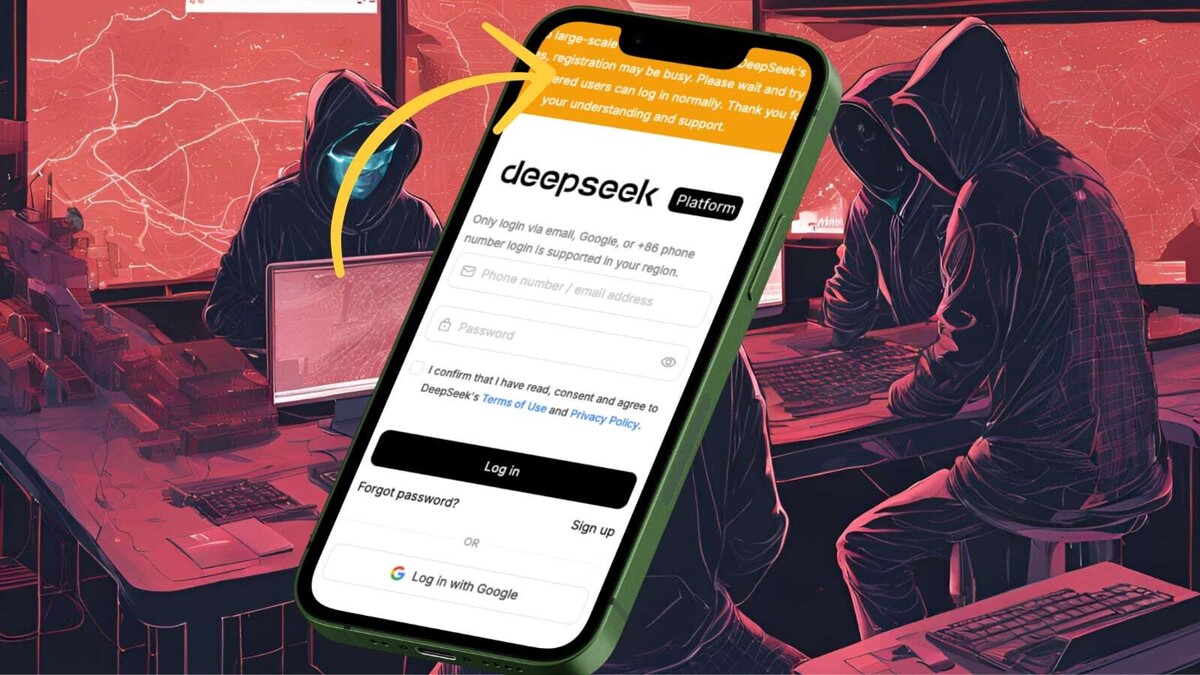
The Chinese artificial intelligence company, DeepSeek, has announced through its website that it is experiencing difficulties in the registration process due to a series of large-scale malicious attacks. Although existing users are not affected, new registrations are limited while the company strengthens its defenses.
Amid DeepSeek's growth in a market dominated by Western giants, the company has become a target for high-profile attacks. Users interested in joining the platform are urged to be patient and to try again later as the situation is resolved. Attention is now focused on DeepSeek's ability to operationally recover and protect itself from such threats in the future.
The statement explains that a DDoS attack is a type of cyberattack designed to disrupt the normal operation of a system, service, or network by overwhelming it with a massive flow of malicious traffic. Although no technical details about the extent of the attack or its origin were provided, DeepSeek assures that user data security has not been compromised and that they are working to resolve the situation as soon as possible.
These events come at a critical time for DeepSeek, which has gained international recognition for its advanced language model, DeepSeek-V3. However, the popularity gained has also attracted the attention of malicious actors. The cyberattack occurs amid the global attention the company has received for its technological advancements and its economic impact on the industry.
The current situation highlights the cybersecurity challenges faced by emerging companies in the field of artificial intelligence, especially those that achieve rapid growth and notoriety. Despite the setbacks, DeepSeek is working to fully restore its services and ensure the protection of its users in the future.














